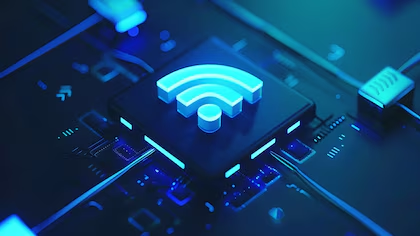🔊 Listen to the note
World, October 20, 2024 (ATB Digital).- WiFi networks are essential to keep us connected at all times, whether at home, at work or in public places. However, not all WiFi networks are secure, and there is one type in particular that can pose a considerable risk to those who use them: public or open networks, especially when they are free.
These networks, commonly found in coffee shops, airports, hotels, and other public spaces, can be an easy target for cybercriminals.
Because they do not require a password to connect, they allow anyone, including those with malicious intent, to access the network and potentially intercept users’ personal information. This can include sensitive data such as passwords, banking information, or even emails and private messages.
“The same features that make free WiFi hotspots desirable to consumers make them attractive to hackers; specifically, the absence of authentication requirements to establish a network connection. “This feature offers an incredible opportunity for hackers to gain unrestricted access to unsecured devices on the same network,” explains Kaspersky.
Using free, public WiFi networks can be extremely dangerous due to the ease with which a hacker can get between the user and the connection point. Instead of connecting directly to the access point, the user unknowingly sends their information to the hacker, who intercepts it and then transmits it to the final destination.
This allows the attacker to access all the information the user is sending over the network, such as emails, credit card data, and even credentials to access corporate networks.
Once the hacker has obtained this data, they can use it to access private systems by posing as the legitimate user, posing a major risk to personal and business security. Cybercriminals can take advantage of the unsecured connection to distribute malware.
If the user has network file sharing enabled, the hacker can easily introduce malicious software onto the device, without the user noticing. Some attackers even manipulate the connection point so that, when connecting, a message appears. pop-up window pretending to be a legitimate software update. By entering this window, the user downloads the malware to their device. The popularization of public and mobile WiFi networks is increasing security risks on the Internet.
Source: Infobae
